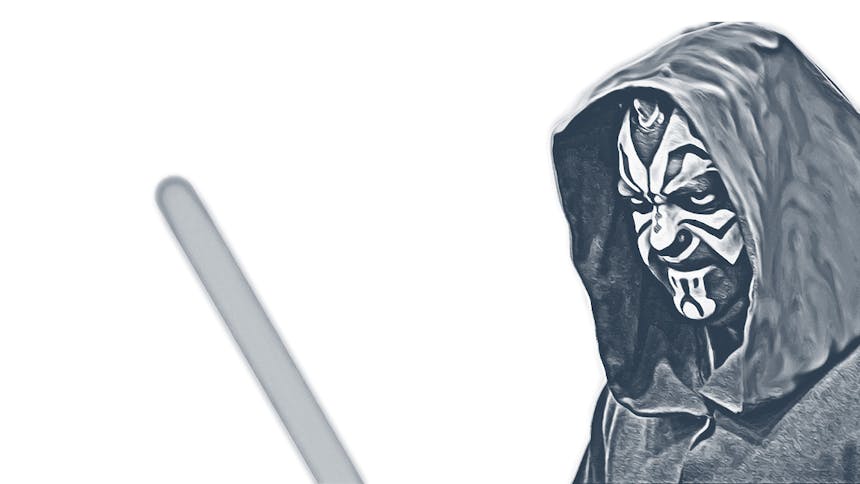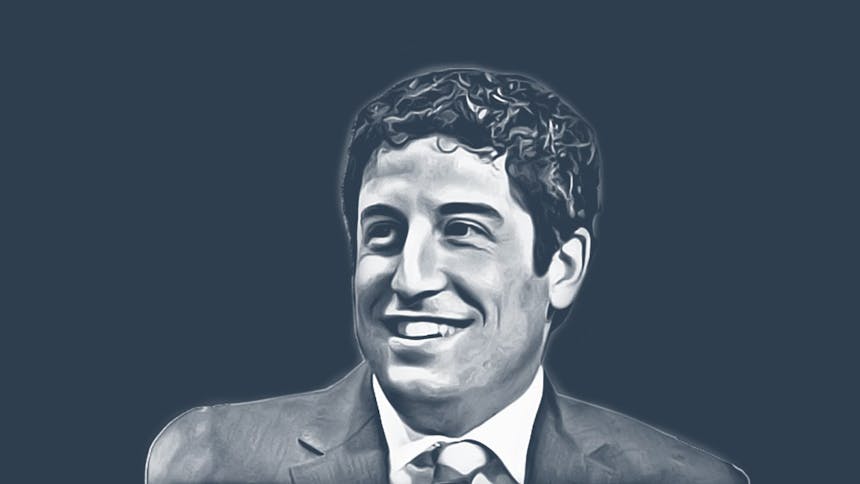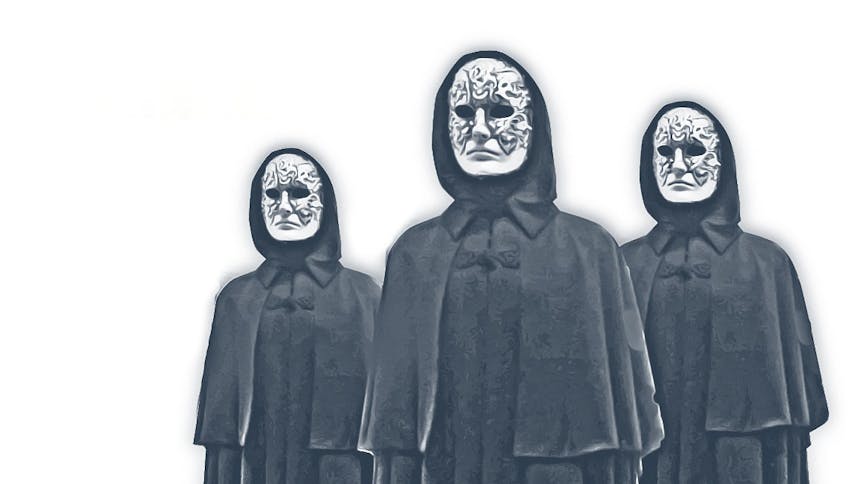With one click
Export a perfectly formatted traditional script.
Ahhhh, summer of 1999. I was a young teenager, sneakily watching R-rated movies at my friends’ houses, listening to Britney Spears, and trying to decipher adult whispers about Y2k. Were we all going to die? Meanwhile, brilliant things were happening in Hollywood. If the world had ended that year, at least we’d be leaving a bevy of fantastic films behind. That year was simply a great year for movies, so let’s relive those glory days with a recap of six of the summer ’99 cinematic greats and the screenwriters we have to thank for them.
Export a perfectly formatted traditional script.



“Always two, there are. No more, no less. A master and an apprentice.”
Screenplay by George Lucas
Released May 19, 1999
In past interviews, George Lucas said he waited more than a decade and a half to create “Star Wars: Episode I – The Phantom Menace,” following the original “Star Wars” in 1977 because special effects technology had not advanced to a level that he felt necessary to make this film. Lucas said the original “Star Wars” story was too vast a universe to be covered in one movie and was always meant to have sequels or prequels. He began writing the screenplay for “Episode I,” the first in the trilogy, in 1994 based off an outline he’d created back in 1976 that helped him keep track of all the original Star Wars characters and backstories. After a 16-year gap between the original “Star Wars” and “Episode 1,” the anticipation had reached a boiling point, with many employers closing for opening day so employees could go see the film, according to The Wall Street Journal. It became the highest-grossing film of 1999, earning more than $924.3 million during its initial run.

“They probably have special dorms for people like us.”
Written by Adam Herz
Released July 9, 1999
Adam Herz’ “American Pie” was a box office hit, especially for a teen comedy. He’s said to have written the film’s treatment during a vacation in 1998, which quickly moved into production for a summer ’99 release. At the time, Herz was only 27 and only had TV sitcom spec scripts in his arsenal. His agents encouraged him to write a feature, and “American Pie” was born. The script was crass but had heart and dealt with the human condition. Fans loved it, and Herz went on to make three sequels.

“It’s as if I’ve taken love heroin, and now I can’t ever have it again.”
Screenplay by Richard Curtis
Released May 28, 1999
Screenwriter Richard Curtis said the idea for “Notting Hill” came to him while he lay in bed one night and wondered what it would be like if he brought a very famous person over to a friend’s house for weekly dinner. While writing, he said he listened to Everything But The Girl’s version of ‘Downtown Train’ on repeat, because there was something in the tone of that song that he wanted to capture in the script. He must have been successful because the romantic comedy went on to gross more than $350 million worldwide. It was nominated for best motion picture, best actress and best actor at the Golden Globes, and won a BAFTA award.

“I’m scared to close my eyes. I’m scared to open them.”
Written by Daniel Myrick, Eduardo Sanchez
Released July 30, 1999
Daniel Myrick and Eduardo Sanchez always planned for the dialogue in their film to be improvised, so you won’t find much of script for this ’99 found-footage horror film. In more of an outline, the pair loosely crafted a 35-page story on which to base the movie while they were in film school in Florida. They wanted the story to seem real, for which they relied on improvisation. The writers gave the actors instructions on where to take the story each day, and they filled in the blanks from there.

“No dream is ever just a dream.”
Written by Stanley Kubrick, Frederic Raphael
Released July 16, 1999
Based on the 1936 novellaTraumnovelle(Dream Story) written by Arthur Schnitzler, Stanley Kubrick wrote the screenplay, produced, and directed “Eyes Wide Shut.” Kubrick originally bought the rights to the novel in the 60s but didn’t start writing the adaptation until hiring fellow writer Frederic Raphael to assist. The pair moved the location of the story from Vienna, Austria to New York City. Kubrick died six days after showing the final cut of the film to Warner Bros. Pictures.

“I see dead people.”
Written by M. Night Shyamalan
Released August 6, 1999
M. Night Shyamalan’s thriller was nominated for the Best Screenplay Oscar and the Best Screenplay Golden Globe. It helped him make a name for himself as a writer and director and solidified his signature style for surprise endings. In past interviews, Shyamalan said the original story was a serial killer movie, and that Malcolm realizes his son is seeing the victims of the criminal. But all that changed, and in a rare occurrence of events, the screenplay was greenlit without a single rewrite. It sold for $3 million. The film went on to be the tenth highest-grossing horror films of all time.
The images in this blog have been modified from their original versions:


